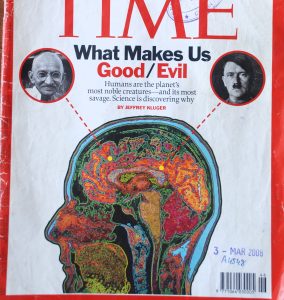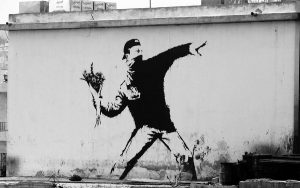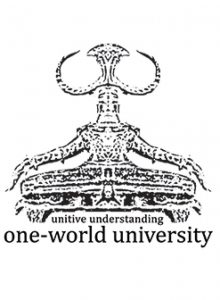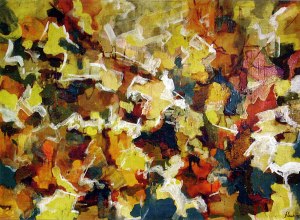Updated on: August 6, 2021
For PDF version of the article click here
Preface
We, as human beings, are facing an existential crisis that is global in nature. The crisis has many facets that range from personal feelings of loneliness, fear or insecurity, and gender discrimination, to degeneration of modern political institutions, depletion of resources and degradation of the environment. The global nature of the crisis makes it impossible to be solved only by a few individuals or communities. A consensus across humanity is necessary to overcome the situation.
To make our consensus enduring, we need a fundamental norm that remains relevant across time and clime, capable of integrating various human communities while fully respecting the unique personality of each individual. Thus, the idea of the Self and its Sovereignty becomes the central theme of the present discourse.
(Human) Self as a self-aware, self-reflective dynamism, is a universal constant in the context of human life. It is the definitive verity that makes us human. It is the abode of all personal experiences or understandings and a necessary prerequisite for making community life possible. So that, if we could have a consensus on the basic nature and aspirations of the Self, it could serve as the normative vision capable of orienting our lives. Needless to say, such a vision would be relevant to all aspects of human life including educational, communal and economical.
Fortunately, since the matter in question is the nature of the Self, there is nothing to be found outside; the subject and object of contemplation is oneself. Besides, we don’t have to re-invent the wheel; it has been the quintessential concern of the poet-seers, philosophers or perennial wisdom tradition(s) from all over the world.
Still, any discussion regarding the human-self in our time has to consider two relatively recent intellectual approaches called modern science, the precursor of modernity, and post-modernism, both of which drastically transformed our notions of the Self. Modern science or the empirical methodology – the dominant, official, knowledge system of our time – studies the self very matter-of-factly; typically considering the self as a consequence of a set of neural, chemical processes.
On the other hand, post-modernist views consider the self more or less as a reflection of the social, cultural, class, contexts it happens to be. It highly favours relative, local, identities over the universal aspect(s) of the self, it seems.
Thus, the article starts by discussing the influence of these two inter-related streams of thought which deeply and almost always unconsciously shape our perception of ourselves. The discussion ranges from Darwin’s theory of evolution to neo-liberal economic views, while analysing how modern science supplies the logic for the self-injurious ways of modern living.
The second part of the article attempts to enunciate the nature of the Self or the innate axioms belonging to the same, in a systematic manner known to perennial traditions. The final part explores the possible reorientation(s) of the practical aspects of our lives in view of the wisdom of the Self.
A detailed discussion of all these topics could extend to hundreds of pages. But the intention of the present work is just to give a concise introduction to the most important aspects we need to discuss in the context of the personal or global crisis. To avoid the tediousness of a lengthy essay, to make it simpler and more accessible, a question-answer format is also chosen.
With the hope that the article would inspire you to delve deeper into the subjects discussed, I hand it over to you, beloved reader.
*
What does Sovereignty mean?
The word Sovereignty has many layers of meaning. It could refer to the practical or functional autonomy and self-sufficiency of a person or community. It could mean the absolute authority of a (governing) body over itself. As understood by various wisdom traditions, it could also refer to a state of Self-contentment – a freedom from fear or want – resulting from Self-understanding.
In the modern era, the term is predominantly used in the context of political philosophy, especially to denote the supreme authority of the modern political establishment called Nation-State. The sovereignty of the nation-state has both external and internal dimensions. Externally, it typically intimates the territorial integrity of a nation. Internally, it commonly refers to authority over a population, monopoly over force, control over natural resources, etc., within its territory.
What is the basis of the nation-state’s sovereignty? How is it legitimate for the nation-state to claim such sovereignty?
Principally speaking, we could say that a modern, democratic nation-state derives its sovereignty from its constitution. The constitution, in turn, finds its authority from its intention to protect certain basic rights of the citizens, such as their right to life, from violation.
In 1948, the United Nations adopted the Universal Declaration of Human Rights, which attempted to integrate normative notions of human rights with various ideas of exclusive citizenship. It was gradually ratified by most of its member nations and begins by stating:
Whereas the recognition of the inherent dignity and of the equal and inalienable rights of all members of the human family is the foundation of freedom, justice and peace in the world,
Whereas disregard and contempt for human rights have resulted in barbarous acts which have outraged the conscience of mankind, and the advent of a world in which human beings shall enjoy the freedom of speech and belief and freedom from fear and want has been proclaimed as the highest aspiration of the common people,
Whereas it is essential, if man is not to be compelled to have recourse against tyranny and oppression, that human rights should be protected by the rule of law…
That is to say, in theory, the inherent sovereign value of a human being is the foundational idea of modern democratic ideals. A democratic constitution derives its legitimacy from vowing to protect this fundamental value or dignity and consequent inalienable rights from possible violations through the establishment of the rule of law. The (modern) state is the embodiment of the constitution, with the government being the instrument serving that purpose. Put differently, the modern democratic nation-state obtains its legitimacy and sovereignty as the representative of the common good or the common will, verified by periodic, independent voting based on universal franchise.
How is a common will or democratic community formed?
Any democratic community is formed when a sovereign person consciously recognizes that his or her inherent-inalienable value is a common principle, that it is an essential truth of every (human) existence. This then also forms the basis of equality, i.e., the idea that all humans are equal in value, irrespective of gender, class, religion, etc., as well as the idea of fraternity.
Since human beings are communal beings by nature, and have to live together to survive, not to speak of our mutual emotional-intellectual needs, sovereigns enter into a common agreement (constitution). Its purpose is to orient their daily community life while protecting the dignity of every member of the community.
What then is the relationship between the sovereign, the community, and the state?
Each human being, by virtue of having an innate value, is a sovereign and has the inalienable right to live as he or she pleases. As a sovereign recognizes one’s mutuality and inter-dependability with fellow sovereigns, a community becomes synthesized. The community establishes the state to organize community life according to the consensus (constitution) among sovereigns. The community or the state can interfere in the life of a sovereign individual only if he or she restricts the liberty of fellow beings or (intentionally) engages in violence towards them. Otherwise, a sovereign is free to exercise his or her will as he or she wants. That is to say, a person needs to practice non-violence only, to protect his or her liberty. All other obligations of the sovereign to the community are only voluntary in nature.
Given such a substantial philosophical basis, why is it that in reality, many individuals and communities all over the world experience the modern nation-state as a notoriously militant, repressive, and ecologically short-sighted entity? It is as if the very institution we created to secure the common good is actively destroying it day by day!

(Image Courtesy: Banksy)
There are historical and structural reasons that make the (nation) state tyrannical, which we shall discuss later. More generally, however, this self-contradiction of the nation-state is not a lone phenomenon of that particular institution but the general character of all major fields of modernity, be it modern medicine, education, technology, etc. For example, the so-called Green-revolution which introduced chemical farming while claiming that it would produce food for all, has, in fact, poisoned the entire biosphere, sparing not even breast milk. And we could trace back such self-contradictions of modernity as essentially belonging to Empirical Methodology, popularly known as Modern Science.
Modern Science – The Dominant Knowledge System
What is the relationship between modernity and modern science? How are the modern nation-state and science related?
Modern science is the only system of knowing considered authentic by modern education and institutions more generally. As the dominant knowledge system, it has sidelined other approaches to knowledge including indigenous and religious ones. Modern science could be described as the original driving force behind modernity enabling it to reign supreme by bringing about a paradigm shift in technology and resource usage. Inventions ranging from the steam-engine to the internet and artificial intelligence, created and continue to sustain the infrastructure underpinning all of modernity, including the military, communication, transportation etc.
Modern science is the yardstick of our time against which every other approach to knowledge or life is measured to be considered legitimate. The contradiction of the modern state must thus be understood in the overarching modern scientific context.
Please elaborate…
Let us start by exploring further the political philosophy we have been discussing. As we have seen, the foundational idea of modern political philosophy is that of innate value of a human being. But what if we question this axiom? Do humans really have innate value? Do they, or their lives, have any real meaning or significance? Could this axiom not be a mere social construct to make a harmonious collective life possible? Is it perhaps a collective delusion necessitated by nature for the survival of the species?
How would modern science as the only authentic knowledge system of modernity, answer such questions?
The fact is that empirical methodology i.e., modern science, has absolutely nothing to say either about the innate value of human existence, or about value itself. At best, it may be able to describe the neural-physical processes of the brain that (it thinks) acts as the basis of our sense of self-worthiness. Put differently, as a methodology that insists on objective observation, measurement, experimentation etc., modern science is inherently incapable of containing the idea of value of a human being or of the universe more generally. Is it not a self-contradiction that the only authentic system of knowing in our time is in total disconnection with the central assumption of our human rights thought and democratic institutions? Could not that explain, to a great extent, the murderous approaches, technologies and policies perpetuated by our scientists and politicians in the name of the common good?

Does this mean that the contradictions of modernity originate from modern science itself?
We could say so. Any system of knowledge worth that name must address three aspects of knowledge in an integrative manner. These are: a) Epistemology b) Methodology and c) Axiology. In the context of science, we can call it concisely the Philosophy of Science.
Let us consider the aspect of Axiology (the science of values), first. A knowledge system or a science must have absolute certitude about value, in general, to justify its own existence. Without it, we cannot think of any value to the knowledge or the science itself: it is self-negating. Claiming to be a (valuable) science without an axiology is one of the major self-contradictions of modern science.
As the (only) official knowledge system of modernity, the commissions, omissions and the contradictions of modern science penetrate, influence and (de)form all other aspects of knowledge.
What are the implications of this contradiction?
From a humanitarian perspective, when a value-ignorant modern science reigns supreme as the only authentic way of knowing, all notions of value, including the notion of innate (human) value, become fictional concepts, arbitrarily and conveniently assumed to orient daily community life. Any claims of basic human rights become effectively hollowed out; making those rights constantly vulnerable to the whims and wills of the powerful – as is evident all around us.
Innate value is the supposed universal that holds true for all. When this axiom is ignored, implicitly or explicitly, we are negating our commonality. Common-sense or the sense of commonality cannot survive in such a situation. The community begins to disintegrate into exclusive individualism. When a person gets individuated thus, identifying with his or her unique body alone, the world becomes the other as a consequence. Likewise, since the individual body is always susceptible to illnesses, accidents and death, insecurity or fear becomes a constant presence in an individual’s life.
This basic insecurity arising from alienation and the consequent shortsightedness of a person is the primary fuel of any hegemonic system. Such a person is instinctively prone to secure oneself from the other and even dominate the other, so that any untoward event could be thwarted. States constantly tap into this fear of the other, thereby rendering a militant State natural and normal. Likewise, modern market economy promises liberation from the void, resulting from alienation, through the constant consumption of materials. The same economy perceives everything, humans as well as nature, as commodities to be exchanged for monetary gain.
How could such a reductive, utilitarian approach to life have become not only legitimate but indeed the only possible way of life for the majority of people?

The principal reason is an empirical methodology without a deeper sense of value, the mere touch of which objectifies and materializes everything. It turns the universe into an aggregation of matter, gases and liquids, and human beings into mere collections of cells, secretions, etc. The human self, the primary abode of all value or aesthetic experience, is altogether left out by such an approach. It is this materialization of life or nature by modern science which is reflected in the commodification brought about by monetary economy. Modern science supplies the logic and legitimizes the very existence of such an economy. Similarly, the ongoing spree of technology can be understood as a reflection of the same methodology, devoid of any sense of direction.
The all-pervading discourse of development (of the economy) that typically avoids any substantial discussion concerning the meaning or purpose of the process, also demonstrates the essentially evasive orientation of the contemporary knowledge system.
It is also intriguing to see how the mainstream media characteristically stresses the relative nothingness of (human) life in general, while it lauds the exploration of the universe by modern science. Such a narrative could be sensible and even logical only against the backdrop of modern science that effectively reduces the meaning of human existence to a mere nothingness.
Is the contradiction of empiricism only related to values?
Certainly not. Consider the epistemology of empiricism. Epistemology must enunciate a theory of knowledge i.e., what is knowledge or what is the purpose of knowledge or knowing. For a science, there can be nothing outside of knowledge. Knowledge is the absolute constant through which science is destined to realize the truth of knowledge itself . Similarly, knowledge is the definitive verity that makes a being human, which in turn enables a human to realize the being.
Any science worth that name has to establish first what it means by knowledge. It is a philosophical verity a science must have to legitimize its own existence.
Yet modern science does not refers to the truth of knowledge or the human being; it contents itself as just the enquiry for it or as the study of specific fields of knowledge. It only endeavors to discover the truth (of knowledge or us), which is here and now, in an unpredictable future and even that finding is considered only probable.
This truthlessness of modern science regarding knowledge renders everything, not just science, but human beings and existence itself, hollow. There cannot be any true, enduring meaning to anything; instead, things can have only transactional and transient meanings arising out of daily life necessities, until that golden day of truth arising out of that ultimate scientific experiment!
One may take modern psychology as a telling example: if we are to understand the abnormal, we need to have an idea of the normal. But what is normal today? The norm is a conformist who internalizes the reductive outlook of the system and nourishes it practically.
Can we then say that as a knowledge system, modern science is self-negating?
Yes. A knowledge system ignorant of the nature of knowledge (epistemology), is a system that is essentially self-negating. In other words, since knowledge is the defining verity of a human being, when a human being is ignorant of the nature of knowledge, he or she is not self-aware or self-knowing, essentially. Indeed it is self-negation which manifests as our suicidal lifestyle.
The approach of postponing the understanding of the truth to an indefinite future and occasion, i.e., to a linear time and space, in the very domain of knowledge, pervades every other realm of human life. In modern education systems, for instance, students are told to tolerate all sorts of intimidations and restrictions for their benefit at some point in future. One of the fundamental, if implicit, teachings of the modern system is that, You are not supposed to be happy here and now. Life is a struggle (read: experimentation). Now you should work, so that you can be happy in the future. Similar is the case of the so-called development process; we are supposed to wait patiently without complaining for that ultra developed age to come, even while we are literally suffocating to death due to the aggregate pollution brought about by the process!

(Image Courtesy: Banksy)
Briefly, there is a clear negation of the living truth, in favor of a truth that is placed remotely in linear time and space. This approach sharply limits, shapes and interprets how we personally understand and experience time-space. It is not unlike religious priests postponing heaven to another world, even when wise ones have unmistakably declared time and again that it is here and now . This postponement of the truth (or of sovereign value) is what always legitimizes and normalizes the existence of hegemonic institutions and their command over human beings.
And, when modern scientists act like they are the ones who would eventually figure out the whole truth for the first time in history, they essentially trivialize the lives of human beings who have lived before.
A (Very) Brief History of Modern Science
To begin with, how did modern science come to have such an erroneous, unphilosophical, orientation?
All knowledge is inseparable from the knower, the human being. We call something knowledge when it is sensible, affective or valuable for a human being. Therefore, until the modern era, philosophy (the science of principles) that contemplates the purpose or meaning of human existence, the converging, integrative, point of all knowledge, had been considered the foundation of all specialized fields of knowledge. Likewise, since the essential reality of human existence cannot be different from the reality of the whole existence i.e., the universe, cosmological enquiries into the nature of the universe, the relationship between the human being and the universe, or the significance of the human being in the universe etc., were essentially understood as philosophical matters. That is to say, psychology and cosmology, the microcosm and the macrocosm, were always understood dialectically or unitively. And subjects like astrology, biology, alchemy (chemistry), etc. conducted their research within this overarching, dialectical framework provided by philosophy.
In Europe, after the (Catholic) church ascended to dominance following the 5th century (CE), philosophy was replaced by the theology of the Church, which nevertheless retained Greek-Roman philosophical influences. During that period, many of the researchers of (empirical) science subjects were Catholic priests and their studies were often motivated by religion.
Later, during the late Middle Ages, many findings and conclusions of empirical studies that had aligned with the worldview of the Church, were proved wrong by new (empirical) discoveries and reformulations. For instance, the earth had been considered to be the center of the universe according to the theology of the time, but Nicolas Copernicus (1473-1543) proved that this was wrong, empirically.
The response of the Church to this and similar explorations and studies was dogmatic, and it tried to suppress such empirical findings through threats and punishments. The Church burned alive Giordano Bruno (1548-1600) who had challenged the orthodox cosmology, and intimidated many like Galileo Galilei (1564-1642). This situation led to the gradual separation of theology (or the philosophy of the time) from science, that is, fields like astronomy, medicine, etc. The scientists of the time did not dare to revalue and restate the epistemology and axiology of theology, but went ahead with empirical methodology alone for furthering their studies. They most likely expected to soon discover the truth empirically, and that their findings would initiate the required revaluing. But gradually, especially during the later Age of Enlightenment, empirical methodology positioned itself center stage, sidelining philosophical considerations. Empiricism revalued and restated epistemology and consequently axiology in its own image. The scientific community’s experience of actual religious oppression and the lack of freedom of thought during the medieval period likely encouraged them to assert the empirical approach to knowledge over the non-empirical, philosophical approaches. Thus, modern science established itself with an unphilosophical orientation.
There is a general skepticism in the modern scientific tradition about anything that speaks with certitude about reality, it seems. Having experienced the dogmatic assertion that insisted on faith at the expense of reason, and experiencing its dire effects, we could say that there was a reactionary suspicion by scientists against anything that conceives truth in an apodictic manner – which the scientific tradition retains to this day.
The Post-Modern Turn
In the post-modern era, truth is a very contentious word. The perspectives that could be called post-modernist, generally take a position against any universalized version of truth that transcends time and space. Here, truth is contextual, individualistic or an amalgamation of various perspectives. There is no truth, but truths!
Is not the idea of One Truth the single greatest ingredient for a dictatorial regime?
We ought not to stop discussing truth citing the abuses that have taken place in its name, just as we cannot stop discussing community life citing the possible errors in leading one. It would also be self-contradictory to insist on there being no truth as a truth!
When we say truth, we are not referring to individual preferences, views or actions which are necessarily divergent, but the (all inclusive) Existent. It is the Beingness of everything or the Being in all beings. If we say, there are many truths, then there cannot be any certitude about anything, including about the value or meaning of (human) life. Every assumption could be contrarily disputed and negated including the very statement there are many truths! In this sense, many truths means no truth at all. In such a no-truth situation, all perspectives would be equally valid or invalid; the idea of the better would be null and void. It is a situation of absurdity and chaos.
When the oneness of Truth or the first principle that is true of everything is negated, then the assumption of commonality is impossible. The term we used in an inclusive manner would be more or less nonsensical. In fact, such post-modernist arguments originate from modern science itself.
But these schools of thought seem to be in rival camps at present. In fact, many post-modernists even question the very relevance of modern science.
For a philosophy or science that systematically studies principles that are universal or true of everything, it is impossible to negate the oneness of the real. In other words, science seeks to understand the common; if the commonality or oneness is negated, there cannot be a thing such as science.
But as we have seen, the epistemology of modern science that postpones truth to an indefinite future essentially makes the common non-sensible; it disintegrates and individuates everything, effectively. That is to say, when the all-inclusive absolute aspect of Being is negated, relative identities become absolute. Hence, the disproportionate postmodern assertion of various contextual identities. The ongoing endless specialization of various areas of study, lacking a comprehensive view of the whole (modern medicine for instance), can also be cited as an example of the relative becoming the absolute. In this sense, post-modernism is just a more genuine and blunt version of modern science.
Revaluing Modern Science
The existential crisis discussed at the beginning calls for a common, global, consensus. So, how could we move from the disarrayed present narrative to an integrative one?
The disintegration of the common causes much miscommunication. Due to the prevalence of private truths, it becomes irrelevant even to listen to someone else; communion is missing. To re-evaluate the situation, we need to first look at one of the main blind spots of modern science in relation to an integrative approach.
Human understanding, by default, has a horizontal aspect of knowledge – the relative, actual, objective and transactional world of the many or of various names and forms. It also has a vertical aspect that is subjective or aesthetical which can abstract and generalize the actual plurality to the utmost limits and further, touch the Singular, the Absolute. Therefore, throughout the history of human understanding, there has been a consensus about the need for a dialectical methodology for conceiving knowledge in an integrative manner.
The horizontal aspect of knowledge is the domain of the measurables, where an empirical approach can be used to gather functional, utilitarian information. In non-modern knowledge traditions there is a clear recognition that this positive-empirical approach is inherently incapable of realizing the Absolute, the Immeasurable, the Aesthetic. To realize this vertical aspect of knowledge, there is another approach known as the negative way or the nivrtti marga (the path of withdrawal) which does not intend to name or measure, instead taking the approach of being negatively assertive, ‘not this, not this’ (neti neti) – rejecting piecemeal, object-oriented knowledge, in view of an absolute vision finally emerging by itself.
The term Vedanta, which means beyond knowledge or end of knowledge, characterizes this approach unmistakably. The icons of Buddhas, spread all over the world, sitting with half closed eyes – indicating disinterest in relative knowledge holding abhaya-mudra (gesture of fearlessness), similarly reveals the perennial way.
This negative way of understanding is guided by the a priori approach, wherein conclusions pertaining to knowledge are not derived from actual observation or experimentation (a posteriori approach), but from introspection and innate logic. Reality being One is such a conclusion, which does not call for any experimentation for verification. Unlike such knowledge traditions, however, modern science one-sidedly insists on the empirical, the relative, based on experimental verification.
Consider, for example, the Big Bang theory of modern science. It states that the universe originated from an all-encompassing (cosmological) Singularity. But science is preoccupied with the relative, manifested aspect of the Singularity, i.e. the universe, while marginalizing the non-relative aspect of the universe, i.e. the Singularity. Vertically viewed – from the perspective of the Singularity that has nothing outside of it – the entire creation-dissolution of the universe is happening within itself, unitively. But modern science seems to be fixated on the details of the Big Bang, much like how children get enamored by fireworks.
It is not that the empirical is irrelevant, but such a methodology needs to be integrated with the innate axioms of knowledge derivable from the a priori approach. The various fields of science are themselves the primary victims of the absence of such an integrative first principle; they simply get lost in the pursuit of endless specialization. Further, a methodology-driven science in practice translates into a technology-driven world. This is how science has reduced itself to a tool of technocracy. If modern science is a religion, technology is its God, which it trusts to solve every single problem!
Unitive Philosophy or Unitive Science
Can the innate axioms of knowledge be elaborated?
Both the oneness of Being and the innate value of Being are foundational axioms. These primary axioms are unquestionable, for if disputed, there cannot be any meaningful understanding. In other words, if these axioms are negated, there cannot be a systematic and valuable approach to knowledge.
If we accept these axioms, we can deduce other verities of understanding or knowledge: since Being is an all-inclusive existent that has nothing outside of it, its value could be relative to nothing but absolute. From the psychological perspective of a human being this implies, I am the Absolute, the Perfect, the Sovereign. The maxims of the Upanishads such as, ‘I am the Absolute’ (Aham Brahmasmi), or ‘This Self is the Absolute’ (Ayam Atma Brahma), and ‘You are That’ (Tattvam Asi), as well as Jesus’ saying: ‘I am the Way, the Truth and the Life,’ or ‘I am the truth’ (Ana’l-haqq) as declared by Mansur Al-Hallaj, unmistakably confirm the axiom. Chief Seattle, too, asserts our oneness when he says that, ‘We are part of the Earth and it is part of us. The perfumed flowers are our sisters, the deer, the horse, the great eagle, these are our brothers. The rocky crests, the juices in the meadows, the body heat of the pony and the man, all belong to the same family.’
It is an objectively verifiable fact that such a non-dual axiom has been discovered, realized and proclaimed innumerable times across time and space. The appeal of their words, which lived on across generations and geographies, is also beyond dispute.
One who knows one-self, knows the Absolute, and one who knows the Absolute is the Absolute itself, are similar verities exalted by perennial wisdom tradition(s). Man, Know Thyself was the maxim inscribed in the forecourt of the ancient Greek wisdom temple of Delphi. Man is the measure of all things said Protagoras (490-420 BC), a Greek philosopher.
Succinctly put, the ultimate conclusion of a philosophy or science worth that name is not even that You are Free, but that You are the Freedom itself. Viewed thus, contemplation is the process through which Freedom becomes conscious of its freedom, for itself, through itself. It is a grand process of Self-appreciation(Atma-rati).
How do we go about integrating these innate axioms with modern science?
Understanding the innate axioms lets us see how the dialectical counterparts at all levels, like the Self and the Universe (non-self), or the psychological and the cosmological, are participating in a complementary, compensatory and reciprocal process or dance that culminates in a cancellation or union of both, as we could also see in the man-woman relationship. Manifestly, it is a constant revaluing or re-embodiment.
Understood this way, each field of science can be viewed as the study of a particular form of the same dialectical process, as between the positive and negative numbers of mathematics mediated by zero. That is to say, each field of knowledge is a particular language of Self-appreciation. Unitively, the negative (a priori or metaphysical) aspect of knowledge and the positive (a posteriori or physical) aspect of knowledge are best understood as necessary counterparts of the total knowledge situation. These counterparts have a natural one-to-one correspondence and can verify and confirm each other to arrive at absolute certitude, just as algebra and geometry can verify each other and confirm a central verity. Maybe we could call this integrative approach to knowledge Unitive Philosophy or Unitive Science.
History and Historiography
But our history seems to tell a story of contradictions and violence between philosophy, science and religion, rather than of dialectical union.
That may seem true, and to understand why, we must examine the history of historiography itself. Modern historiography, which originated in Europe and has been made popular through the curricula of schools and colleges worldwide, more or less projects the history of humanity as a series of perpetual struggles and acts of violence for survival or for domination. A key driving force behind such a narrative is that traditionally historians have been appointed or endorsed by rulers. They tend to document and comment on events and exceptions, like wars, rather than the rule – the daily peaceful co-existence of communities. They then serialize these events into the story of an era, or worse, the story of humankind. This traditionally dominant-official historiography, meanwhile, also normalizes and legitimizes the existence and the violence of the system(s) which produced them. In the present scenario, this narrative of history is further twisted to make violence appear inevitable, and therefore something to be tolerated and even encouraged. Essentially, the system produces historiography in its own image. In other words, a historian sees what he or she is looking for. The purpose of their study of history or life in general generates their historiography. This is not to say that everything was rosy in the past; but still, there is a clear bias towards recording exceptions and exaggerating the negative.
If we look closely, we can see many facets to this exaggeration of the negative. According to popular Western historical understanding, spirituality is something that emerged out of fear of natural elements such as thunder and fire, as if it could not have risen out of any other feeling like a sense of beauty and awe! We can see how this lopsided view conveniently dovetails with the rest of mainstream Western culture: Institutionalized spirituality (in Europe) stresses the notion of original sin while the dominant (neo) liberal economics assumes that the human being is a selfish maximiser. Similarly, the fundamental postulate of modern economics is the assumption of scarcity, again, projecting a sense of deficiency. The habit of understanding life as a struggle was further accentuated by a negative conception of the Darwinian theory of evolution, in which the struggle for existence and survival of the fittest are central references. Such a negative, fear-based orientation of our understanding of the past, naturally extends to our comprehension of the present and the future, and is being continually reinforced through the propaganda of state and market economy in order to serve its own ends. This conglomeration of reductive projections makes the collective past of human communities appear solitary, poor, nasty, brutish and short and nothing to be inspired by. Altogether, it results in self-perpetuating confirmation bias leaving a society cut off from its roots, infused with pessimism and hopelessness about human life in general.
For an exploitative system, it is necessary to establish weakness or violence as the first element of human nature and to normalize violence as the natural way of life. Primarily, this legitimizes its own violent existence while also establishing the necessity of the system as the protector against violence from the other.
So, what is being suggested? To have a balanced outlook?
Yes. Our popular history is mostly confined to a minuscule four to five thousand years which amount to only a fraction of human existence, and even that with major limitations. Contrary to the image created by the above historiography, we don’t have a comprehensive view about the intellectual-emotional or subjective life of those human beings with their history of 100,000 (to go with modern style of time-lining) years or more. Perhaps a close study of indigenous, pre-modern communities and their traditions may enable us to develop a more balanced perspective of our shared history. If we care to look, we would see immense sacrifices made out of love and care, such as the passionate nurturing of children by elders, all around our daily lives.
Our collective past has to be understood dialectically without any exaggeration of either positive or negative aspects.
Self-Government
We were talking about the need for a global consensus and we also saw that modern constitutions are common covenants with good intentions. Is it possible to convert these covenants and thereby the institutions that govern in their name into something truly liberating?
There is a paradox.
The common inspirations or goals of modern democratic constitutions can be traced to the triad of ideals – Liberty, Equality and Fraternity. In view of a general human wellbeing, these principles are indeed laudable. These constitutions envision the nation-state as the administrative institution to orient our daily community life based on those ideals. In other words, modern constitutions are detailed by keeping this institutional structure as a constant.
But if we were to trace the actual, historical evolution of the modern nation-state from previous power structures and institutions, we would clearly see that the modern state emerged and developed in Europe in lockstep with Mercantilism and later with the Industrial Revolution that began in England during the 18th century and gradually spread all over the world. Unlike the pre-modern regimes that had been sustained by farming, the modern nation-state and its apparatus like the military, communication, transportation etc., were totally dependent on the industrial mode of production. That is to say, without industrial production and the consequent market economy, the nation-state as we know it today would not have emerged.
Market economy, in turn, is something that primarily exists for private profit and has scant regard for the common good. It unilaterally aims for ever growing (private) profits through ever growing material production and transactions. Such an idea and attempt towards infinite material growth and accumulation of private wealth on a planet with finite resources is inherently violent and destructive. It also results in the unequal appropriation of natural resources, the common wealth of humanity, by a few. Needless to say, such a market economy is sustained by competition and, undergirded by the strategy of divide and rule.
The question thus is how such an administrative institution that totally depends on an inherently violent production system for its survival can secure the universal ideals of liberty, equality and fraternity. It is, in fact, impossible. More to the point, the state now essentially functions as the military wing of the economy, existing primarily to provide security for, and to further the interests of, private capital. To illustrate this, we only need to look at one of the biggest and most urgent crises we are facing: climate change. It is clear that the intertwined institutional interests of the state and the market are the greatest impediments for solutions to the climate change crisis.

Image Courtesy: Jeff Widener (Tank Man)
In modern times, every single human being is born as a citizen of one or the other nation-state, without exception and without choice. There is indeed no place for human beings to live outside of this system, and people are forced to swallow the state’s propaganda that it is the best system possible. Certainly, this violates one of the basic principles of democracy – a person’s free will or choice. It is not unlike the situation where children are initiated into one or the other religion in their earliest years without any informed consent. If we do not have a choice to opt-out from a system, the system indeed is dictatorial and hegemonic.
But the nation-state and the market economy play an overwhelming and very concrete role in our daily lives. How could we practically go beyond or dismantle such huge establishments in a globalized world?
As we have seen, though our modern constitutional ideals are worthy, the people who created such covenants mixed-up such values with untenable structures like nation-state. This lack of practical wisdom is the necessary result of their paradigmatic ignorance or indeterminism regarding their own foundational idea of innate human value. So, there is a need to revalue and re-state our common consensus in view of a Unitive Philosophy that absolutely affirms the value, freedom or sovereignty of human beings and the equality among them. When it is revalued thus, the only norm that a human being needs to keep in mind to secure his or her sovereignty is that of non-violence. The community or the state has no right to interfere with a sovereign unless he or she restricts the liberty of fellow humans or is (intentionally) violent to them. That is to say, a world citizen who lives unitively has to be understood as a self-contained, self- ruling, government.
Self-Government? Can this concept be elaborated?
Self-Government could be understood both as a self-governing, independent, sovereign, as well as (an open source) world vision or consensus in which a self-inspired sovereign, participates independently and/or collectively from wherever he or she happens to be.
The greatest strength of such a unitive-consensus is that it does away with the need of institutional hegemonic force to ensure its compliance by members of humanity. Everyone wants to live freely and no one wants to be violated. Or, as the saying goes, in everything treat others in the same way you want them to treat you for this is the Law and the Prophets. A law cannot be simpler and anyone could verify it and understand how it ensures his or her happiness – the innate, fundamental urge of a human being – as well as adding to the common good.
If one chooses to deviate from the consensus, one could only do so at one’s own risk, since such an exclusive, dualistic way of life would necessarily alienate one from the One, and thus would necessarily affect one’s joy negatively. When one chooses to do so, it is not like one might experience its negative effects only at some other time, as religions seem to suggest, but that exclusive intention or the act itself is the regression for one.
In other words, the being we call human is an embodiment of meaning or value. It is a self-reflective, self-appreciative being driven by the fundamental urge for self-care or self-happiness. It is for self-happiness alone that a human being does everything. But when this self is understood exclusively, everything becomes self-contradictory; when it is realized inclusively, everything is self-contented. To solve the entire crises of humanity, we need only to let the natural self-care be inclusive.
Further, the Self is the necessary existent or the common that makes the community possible or everything that the community is, is emergent of the Self only. When the (true) nature of the Self is understood, the (true) purpose of the community and its function can be understood at once.
But still, what is the practical aspect of the revaluing? What about the state or the economy with their vested interests, which might actively disrupt such a consensus and the associations arising from it?
All systems are run by human beings, and wisdom can be transformative for anyone at any time! It must be clearly understood that the present crisis and its solution are not ecological, political or economic by nature, but primarily educational. Therefore, no one should be considered to be outside its scope. To handle the situation in terms of us versus them, that very dualism, which is inherently violent, would ruin everything. It would in fact be ensuring that the dualism, the fundamental flaw of the present paradigm, would continue in some other form.

(Image Courtesy: Banksy)
This is not to say that we should not discuss the practicalities of the transformation process.
From the perspective of the citizen, the fundamental purpose and duty of the state (or any system) is to protect his or her right to life. It is thus perfectly rightful to withdraw one’s consent or affiliation from any contract or institution that fails to deliver on this duty, not to mention if it actively endangers one’s very existence. That is to say, the right to opt-out from a contract that imperils one’s life is part of one’s right to life, and is also part of another fundamental right of a sovereign, the right to be left alone.
The practical process of this withdrawal could have many facets. The state and the economy envision and propagate a lifestyle that necessitates their existence. In other words, if we are to envision our lifestyles as propagated by the present system, we would consequently need that very system to maintain them. It is thus necessary to re-imagine our lives thoroughly. As nation-states supposedly represent the common good, it is the trustee of natural resources, i.e. everything except private property including forests, sea, etc. But the monopoly over resources is being abused by continuous privatization and this monopoly and privatization are the basic reasons for the bonded labour-like dependence of persons and communities on the system. Therefore, local communities need to take back these resources into their collective responsibility, not only to ensure self-sufficiency of their communities, but also to guarantee the permanence of the resources, the common wealth on which all life is based.
All services e.g., food, child care, health, education, vocation etc., which used to be taken care of by communities or nature, are now mediated and commercialized through the system. Even drinking water is nowadays a commodity. The process of disintegration of communities into private individuals, too, is directly proportionate to their commercialization. Therefore, to protect our sovereignty, we must regain control over all the services previously outsourced, by rebuilding our communities and networking them together. This would also pool-in hitherto privately held resources and optimize their usage.
One of the main instruments used by the state-market complex in its drive for perpetual growth is (fractional reserve) banking based on interest It is this monetary banking that centralizes the system. Interest payment essentially means more labor and resource usage hence necessitates and ensures more and more production. That is to say, a financial system that depends on people taking loans and repaying them with interest is one of the main engines that run the show. As we build communities, members could save themselves from debt, consumption of market goods and from submitting their sovereignty to the service of a self-injurious system. Indeed, if a critical mass of people could restrain themselves from taking loans or consuming market products, the system would implode in no time and without any particular effort. Put differently, since ever-growing production is a must for the endurance of the system, if we could continuously reduce commercial consumption and transactions by building (trust-based) communities, we would deprive the system of its basic fuel.
The nuclear family is a major institution functioning as a basic orientation school and consumption hub of modern life. It brings up children as potential laborers/entrepreneurs, sends them to schools to internalize dualism, materialism and urbanism, trains them to be consumers with a stubborn sense of entitlement, initiates them into mediocre spirituality and ethics, and corrupts them in such a way that they mistake selfishness for love.
The case of women is similar. A woman with a natural inclination to give birth, nourish children etc., is necessitated to relate to community very intimately. She cannot perpetually wait for the ultimate revolution to happen before engaging with her maternal instincts. That is to say, in the absence of enough open-community spaces where she can live with dignity and her children can grow healthy, she is compelled to fit into clannish groupings and to internalize and perpetuate their mediocre and self-contradictory ways of living. Therefore, developing communities at all levels need a way that ensures the free will of women and a healthy life for children. This is an absolute must for the present system to change drastically towards a just world. Needless to say, it is best done when women themselves lead the process.
The need for spirituality to be freed from institutionalized religion is also a similar goal worth undertaking. Institutionalized religions, in general, postpone the Absolute or Sovereignty to a future time-space by ignoring the Living Truth. Or they more or less maintain a separation of the Being into the creator and the created, since otherwise they lose all relevance. This pseudo-theoretical sidelining of the truth is what normalizes and legitimizes the power of any external authority, be it of the clan, state, market or religion, over a sovereign.
It is of utmost importance for people following a particular religion to be able to differentiate the incidental, contextual or historical aspect of a particular religion from the universal axioms or teachings essentially present in all religions. Viewed from those axioms, all of them are one religion only – aiming self-liberation from the ignorant self-centeredness.
We were discussing reorienting communities and the state according to the Unitive Philosophy. And we have so far elaborated some of the major initiatives required of communities for the process. But what about the state? Can the state not participate in the transition?
The nation-state can start the process of undoing itself primarily by acknowledging that it is just one of the transient superstructures totally dependent on an ecological base structure, i.e. nature. These mammoth states are the unsuspecting species destined to become extinct owing to resource depletion and climate change, if not by political and economic unrest. If we are to allow States to continue their business as usual, they could very well be instrumental in rendering humanity, which includes politicians, military persons, bureaucrats etc., extinct. That is to say, humanity is now compelled to systematically dismantle states and this process of their withering away could be facilitated from both inside and outside.
The handing over of states’ authority over commons to communities outside the state structure, the disaffiliation of state from the debt-interest based banking system, disarmament etc., would be some of the major steps in the right direction.
Even though these ideas sound substantial, would people in general be willing to take them up?
The truth does not change according to the number of people who endorse or negate it. In that sense, the number of people does not matter. This is one of the consolations unitive understanding assures for a sovereign.
A human being can choose to live as one wills; we can only attempt to make sure that this is an informed choice.
***
Sovereignty and Self-Government – A Dialogue, is mainly based on the teachings of Narayana Guru (1856-1928), a poet-seer from South India, and his disciple-successor Nataraja Guru (1895-1973). Narayana Guru’s works like One Hundred Verses of Self-Instruction (Atmopadesa-Satakam) and An Integrated Science of the Absolute (Darsana-Mala), both translated and commented by Nataraja Guru in English, are important treatises of Unitive Wisdom Philosophy. Nataraja Guru received his Doctor of Letters from Sorbonne University for his thesis The Personal Factor in the Educative Process. His major works include The Word of the Guru – Life and Teachings of Narayana Guru and Experiencing One-World. All of their works are freely accessible from: http://advaita-vedanta.co.uk/. A collection of conversations with and selected works of Narayana Guru, is freely downloadable from www.oneworlduniversity.life.
*



















